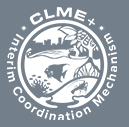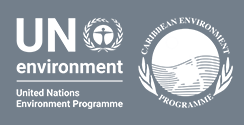|
Insular Caribbean
|
Central & North America |
South America |
Insular Caribbean |
Central & North America |
South America |
Displaying 11-20 of 98 results
 indicates that the Project Profile has been verified and it’s being managed by the project’s profile manager.
indicates that the Project Profile has been verified and it’s being managed by the project’s profile manager. -
Strengthening Fisheries and Aquaculture Governance in the Bahamas
Fortaleciendo la gobernanza de la pesca y la acuicultura en BahamasBrief Description:Capacity building, training and awareness building activities were carried out for relevant authorities, and a functional FISMIS was created. Various workshops were held to ensure the widest possible participation of stakeholders in the development of a new policy and legal framework for fisheries and aquaculture for the country. Processes to establish aquaculture businesses were developed and assessments of the economic potential for aquaculture development and the socio-economic impact of recreational fisheries were carried out. Additional resources were mobilized in order to support on-going aquaculture development assistance and an increased commitment to sustainable fisheries and aquaculture development was built.Se llevaron a cabo actividades de creación de capacidad, formación y concienciación para las autoridades pertinentes y se creó un FISMIS funcional. Se llevaron a cabo varios talleres para asegurar la participación más amplia posible de las partes interesadas en el desarrollo de un nuevo marco político y legal para la pesca y la acuicultura para el país. Se desarrollaron procesos para establecer negocios de acuicultura y se llevaron a cabo evaluaciones del potencial económico para el desarrollo de la acuicultura y el impacto socioeconómico de la pesca recreativa. Se movilizaron recursos adicionales para apoyar la asistencia en curso para el desarrollo de la acuicultura y se construyó un mayor compromiso con el desarrollo sostenible de la pesca y la acuicultura.Lead Organization: FAO/WECAFCDonor: FAOProject ID: TCP/BHA/3501(D)Geographic Scope: NationalProject Status: CompletedLast Update: 25/01/2021
Start Date: 2014-03-03
End Date: 2016-02-29Project Profile Manager: Raymon Vananrooy
Contact Email: Raymon.VanAnrooy@fao.org
Contact Phone:Partners: Ministry of Agriculture and Marine Resources, local governments, private sector fisheries and aquaculture businessesGrant (USD): $469,000.00Total co-financing (USD): $0.00(Co) financing not originating from GEF:Participating Country(s):Bahamas
Contributions to the 10-year CLME+ Strategic Action Programme (2015-2025)
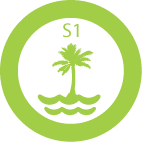
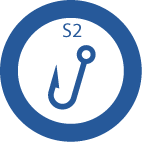

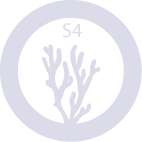
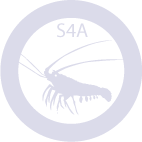

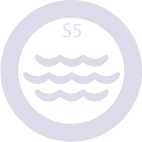
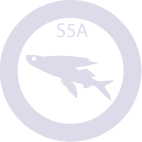
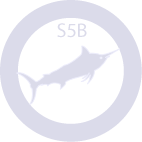
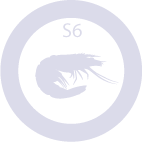 Please click on the colored SAP Strategy icon to obtain more information on the specific SAP Actions this initiative is contributing to1. Enhance the regional governance arrangements for the protection of the marine environment
Please click on the colored SAP Strategy icon to obtain more information on the specific SAP Actions this initiative is contributing to1. Enhance the regional governance arrangements for the protection of the marine environment
1.4. Enhance the compliance and enforcement capacity of the regional, sub-regional and national governance arrangements1.7. Establish and/or enhance the capacity within and among arrangements to undertake and mainstream valuation of ecosystem goods and services in regional, sub-regional and national decision-making and policy development2. Enhance the regional governance arrangements for sustainable fisheries
2.5. Establish and/or enhance the capacity of the regional, sub-regional and national fisheries institutions to develop and implement harmonized management and conservation measures, with special focus on Illegal, Unreported and Unregulated Fishing (IUU) and Monitoring, Control & Surveillance (MCS)2.7. Coordinate the development and implementation of regional, sub-regional and national initiatives for sustainable small scale fisheries (including capacity building and pilot initiatives)2.14. Establish and/or enhance the capacity of the regional, sub-regional and national fisheries governance arrangements for the monitoring, assessment & reporting on the state of fisheries3. Establish and operationalise a regional policy coordination mechanismfor ocean governance, with initial focus on shared Living Marine Resources
4. Enhance the governance arrangements for ecosystem-based management for reefs and associated ecosystems
4A. Enhance the governance arrangementsfor implementing an ecosystem approach for spiny lobster fisheries
4B. Enhance the governance arrangementsfor implementing an ecosystem approach for queen conch fisheries
5. Enhance the governance arrangements for implementing an ecosystem approach for pelagic fisheries
5A. Enhance the governance arrangements for implementing the ecosystem approach for flyingfish fisheries
5B. Enhance the governance arrangementsfor implementing an ecosystem approach for large pelagics fisheries
6. Implement EBM/EAF of the Guianas-Brazil continental shelf with special reference to the shrimp and groundfish fishery
Contributions to the 2030 UN Sustainable Development Agenda (SDG’s)
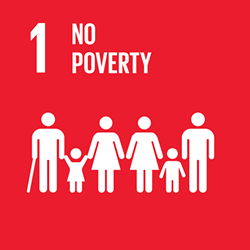
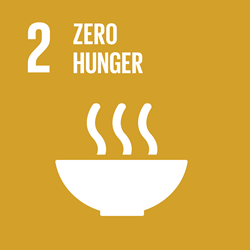
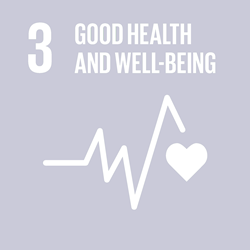
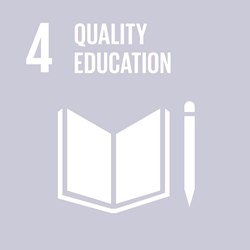
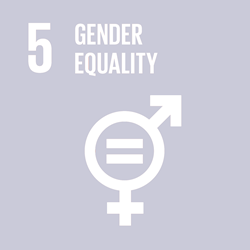
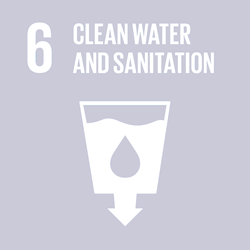
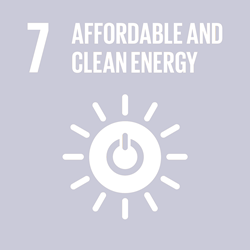
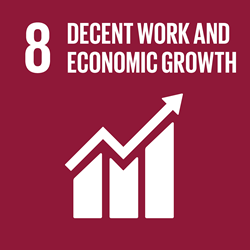
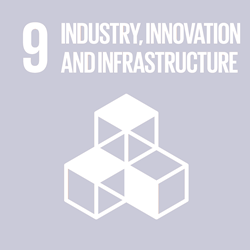
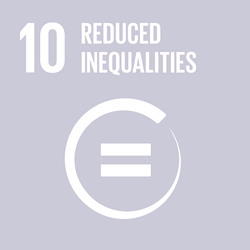
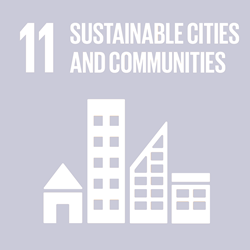
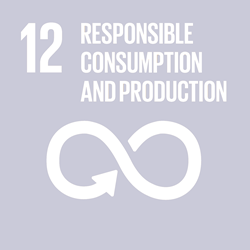
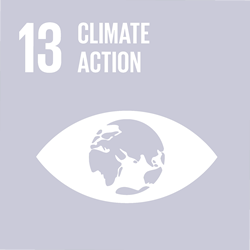
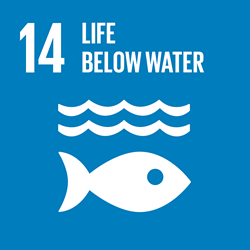
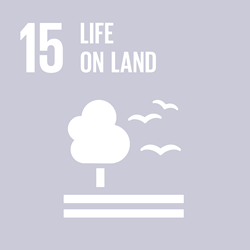
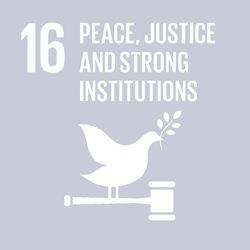
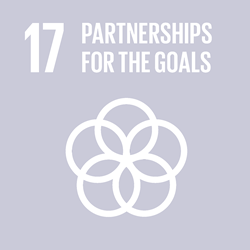
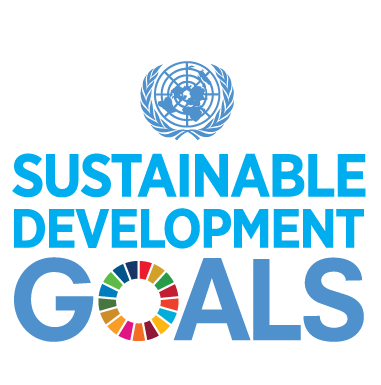 Please click on the SDG14 colored icon to see to which specific SDG14 targets this initiative is contributing.1. End poverty in all its forms everywhere
Please click on the SDG14 colored icon to see to which specific SDG14 targets this initiative is contributing.1. End poverty in all its forms everywhere
1.1 By 2030, eradicate extreme poverty for all people everywhere, currently measured as people living on less than $1.25 a day2 End hunger, achieve food security and improved nutrition and promote sustainable agriculture
2.1 By 2030, end hunger and ensure access by all people, in particular the poor and people in vulnerable situations, including infants, to safe, nutritious and sufficient food all year round3 Ensure healthy lives and promote well-being for all at all ages
4 Ensure inclusive and equitable quality education and promote lifelong learning opportunities for all
5 Achieve gender equality and empower all women and girls
6 Ensure availability and sustainable management of water and sanitation for all
7 Ensure access to affordable, reliable, sustainable and modern energy for all
8 Promote sustained, inclusive and sustainable economic growth, full and productive employment and decent work for all
8.1 Sustain per capita economic growth in accordance with national circumstances and, in particular, at least 7 per cent gross domestic product growth per annum in the least developed countries9 Build resilient infrastructure, promote inclusive and sustainable industrialization and foster innovation
10 Reduce inequality within and among countries
11 Make cities and human settlements inclusive, safe, resilient and sustainable
12 Ensure sustainable consumption and production patterns
13 Take urgent action to combat climate change and its impacts
14 Conserve and sustainably use the oceans, seas and marine resources for sustainable development
14.7 By 2030, increase the economic benefits to Small Island developing States and least developed countries from the sustainable use of marine resources, including through sustainable management of fisheries, aquaculture and tourism15 Protect, restore and promote sustainable use of terrestrial ecosystems, sustainably manage forests, combat desertification, and halt and reverse land degradation and halt biodiversity loss
16 Promote peaceful and inclusive societies for sustainable development, provide access to justice for all and build effective, accountable and inclusive institutions at all levels
Other Regional and Global Commitments
Regional Emerging Issues
MAREA Regional Program for the Management of Aquatic Resources and Economic Alternatives
Programa Regional de Manejo de Recursos Acuáticos y Alternativas EconómicasBrief Description:to promote alternative livelihoods and to foster novel, more sustainable fishing practices. To help find employment for the many fishermen who stand to lose their jobs and to support the equipment purchases needed to assist with the creation of new job opportunities. The Program is working with the Central American Bank for Economic Integration to provide loans and outside donations to help offset the cost of upgrading village fishing boats with fiberglass to ready them to carry tourists. These joint initiatives are expected to create an opportunity for private and public investment in new, sustainable tourism activities that can employ out-of-work fishermen and divers. The project is looking for encourage local fishermen and country-level natural resource managers to adopt a broader, ecosystem-based approach to marine coastal conservation, educating local fishermen and regional leaders about rights-based mechanisms such as ‘catch-shares,’ which grant fishermen exclusive access to fish stocks in designated areas while making other vulnerable areas off-limits.Promover medios de vida alternativos y fomentar prácticas de pesca novedosas y más sostenibles. Ayudar a encontrar empleo para los muchos pescadores que pueden perder sus puestos de trabajo y apoyar la compra de equipos necesarios para ayudar con la creación de nuevas oportunidades laborales. El Programa está trabajando con el Banco Centroamericano de Integración Económica para otorgar préstamos y donaciones externas para ayudar a compensar el costo de mejorar los barcos de pesca de las aldeas con fibra de vidrio para prepararlos para transportar turistas. Se espera que estas iniciativas conjuntas creen una oportunidad para la inversión pública y privada en nuevas actividades turísticas sostenibles que puedan emplear a pescadores y buceadores desempleados. El proyecto busca alentar a los pescadores locales y a los administradores de recursos naturales a nivel nacional a adoptar un enfoque más amplio basado en el ecosistema para la conservación costera marina, educando a los pescadores locales y a los líderes regionales sobre los mecanismos basados en los derechos, como las 'capturas compartidas', que otorgan los pescadores tienen acceso exclusivo a las poblaciones de peces en áreas designadas mientras que otras áreas vulnerables están fuera de los límites.Lead Organization: Chenomics International IncDonor: USAIDProject ID:Geographic Scope: Multicountry (regional)Project Status: CompletedLast Update: 23/01/2021
Start Date: 2010-07-02
End Date: 2015-07-07Project Profile Manager: Nestor Windevoxhel
Contact Email: nwindevoxhel@mareaprogram.org
Contact Phone:Partners: WWF, TNC, Sea Turtle Conservancy, Solimar InternationalGrant (USD): $13,900,000.00Total co-financing (USD): $0.00(Co) financing not originating from GEF:Participating Country(s):Belize
Costa Rica
Guatemala
Honduras
Panama
Nicaragua
El Salvador
Contributions to the 10-year CLME+ Strategic Action Programme (2015-2025)



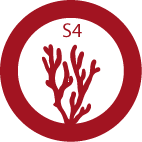
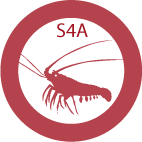




 Please click on the colored SAP Strategy icon to obtain more information on the specific SAP Actions this initiative is contributing to1. Enhance the regional governance arrangements for the protection of the marine environment
Please click on the colored SAP Strategy icon to obtain more information on the specific SAP Actions this initiative is contributing to1. Enhance the regional governance arrangements for the protection of the marine environment
1.4. Enhance the compliance and enforcement capacity of the regional, sub-regional and national governance arrangements1.6. Enhance the capacity within and among arrangements to undertake and mainstream lessons learned and findings from monitoring,science and research in regional, sub-regional and national decision-making1.7. Establish and/or enhance the capacity within and among arrangements to undertake and mainstream valuation of ecosystem goods and services in regional, sub-regional and national decision-making and policy development1.10. Establish and/or enhance the data and information quality and collection and management capacity of the regional, sub-regional and nationalgovernance arrangements for the protection of the marine environment, including through the establishment of public-private partnerships2. Enhance the regional governance arrangements for sustainable fisheries
2.4. Establish and/or enhance the capacity of the regional, sub-regional and national governance arrangements for the broader involvement of society in the implementation of the EBM/EAF approach (IGOs, NGOs, CBOs, private sector...)2.7. Coordinate the development and implementation of regional, sub-regional and national initiatives for sustainable small scale fisheries (including capacity building and pilot initiatives)2.8. Coordinate the development and implementation of regional, sub-regional and national initiatives to improve welfare and livelihoods through the provision of Decent Work(including through the development of alternative livelihoods, capacity building and pilot initiatives)3. Establish and operationalise a regional policy coordination mechanismfor ocean governance, with initial focus on shared Living Marine Resources
3.5. Develop and coordinate integrated and sectoral research strategies in support of the implementation of broader ocean governance in the region, with a short and medium term focus on sLMR management3.6. Develop and coordinate integrated and sectoral sustainable financing strategies for the cost-effective implementation of broader ocean governance in the region, with a short and medium term focus on sLMR governance3.7. Facilitate the preparation of data and information products and the uptake of monitoring and research outputs by (sub)regional and national science-policy interfaces4. Enhance the governance arrangements for ecosystem-based management for reefs and associated ecosystems
4.1. Strengthen the formal cooperation between OSPESCA and CCAD for implementing the EBM/EAF approach4.3. Establish, strengthen and harmonize, (sub-)regional and/or fisheries-specific initiatives to combat IUU fishing by combining compliance measures (Monitoring Control and Surveillance plus awareness building among consumers & producers) with the provision of alternative livelihoods4.5. Develop and implement initiatives for sustainable livelihoods by building capacity for diversification, fostering and facilitating viable alternative sources of Decent Work and/or improved incomes, and creating addedvalue (e.g. through marketing and sales)4A. Enhance the governance arrangementsfor implementing an ecosystem approach for spiny lobster fisheries
4A.2. Evaluate and expand, as applicable,the geographic scope of the governance arrangement operated by OSPESCA, taking into consideration both the perspectives of species range (ecosystem approach) and of common markets4A.3. Strengthen and achieve full implementation of policy cycles under the existing sub-regional governance arrangements for the management of the spiny lobster fisheries, including linkages with organizations working on the environmental protection of reefs and associated ecosystems4A.4. Operationalise and strengthen a DSS for the spiny lobster fisheries (including linkages to the DSS for the protection and sustainable management of reefs and associated living marine resources)4B. Enhance the governance arrangementsfor implementing an ecosystem approach for queen conch fisheries
5. Enhance the governance arrangements for implementing an ecosystem approach for pelagic fisheries
5A. Enhance the governance arrangements for implementing the ecosystem approach for flyingfish fisheries
5B. Enhance the governance arrangementsfor implementing an ecosystem approach for large pelagics fisheries
6. Implement EBM/EAF of the Guianas-Brazil continental shelf with special reference to the shrimp and groundfish fishery
Contributions to the 2030 UN Sustainable Development Agenda (SDG’s)
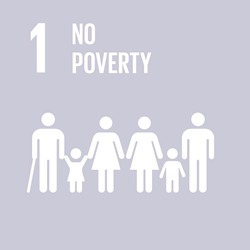
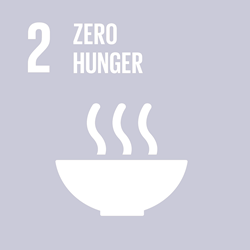





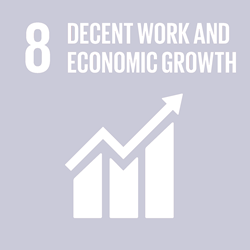









 Please click on the SDG14 colored icon to see to which specific SDG14 targets this initiative is contributing.1. End poverty in all its forms everywhere
Please click on the SDG14 colored icon to see to which specific SDG14 targets this initiative is contributing.1. End poverty in all its forms everywhere
2 End hunger, achieve food security and improved nutrition and promote sustainable agriculture
3 Ensure healthy lives and promote well-being for all at all ages
4 Ensure inclusive and equitable quality education and promote lifelong learning opportunities for all
5 Achieve gender equality and empower all women and girls
6 Ensure availability and sustainable management of water and sanitation for all
7 Ensure access to affordable, reliable, sustainable and modern energy for all
8 Promote sustained, inclusive and sustainable economic growth, full and productive employment and decent work for all
9 Build resilient infrastructure, promote inclusive and sustainable industrialization and foster innovation
10 Reduce inequality within and among countries
11 Make cities and human settlements inclusive, safe, resilient and sustainable
12 Ensure sustainable consumption and production patterns
13 Take urgent action to combat climate change and its impacts
14 Conserve and sustainably use the oceans, seas and marine resources for sustainable development
14.2 By 2020, sustainably manage and protect marine and coastal ecosystems to avoid significant adverse impacts, including by strengthening their resilience, and take action for their restoration in order to achieve healthy and productive oceans14.4 By 2020, effectively regulate harvesting and end overfishing, illegal, unreported and unregulated fishing and destructive fishing practices and implement science-based management plans, in order to restore fish stocks in the shortest time feasible, at least to levels that can produce maximum sustainable yield as determined by their biological characteristics14.a Increase scientific knowledge, develop research capacity and transfer marine technology, taking into account the Intergovernmental Oceanographic Commission Criteria and Guidelines on the Transfer of Marine Technology, in order to improve ocean health and to enhance the contribution of marine biodiversity to the development of developing countries, in particular small island developing States and least developed countries14.b Provide access for small-scale artisanal fishers to marine resources and markets15 Protect, restore and promote sustainable use of terrestrial ecosystems, sustainably manage forests, combat desertification, and halt and reverse land degradation and halt biodiversity loss
16 Promote peaceful and inclusive societies for sustainable development, provide access to justice for all and build effective, accountable and inclusive institutions at all levels
Other Regional and Global Commitments
Regional Emerging Issues
Climate Resilient Coastal Mangement and Infrastructure Program
Programa de infraestructura y gestión costera resiliente al climaBrief Description:The program's objective is to build resilience to coastal risks (including those associated with climate change) through sustainable coastal protection infrastructure, including natural infrastructure and integrated management of the coast. Specifically, the program will finance science-based shoreline stabilization and coastal flooding control measures in East Grand Bahama (EGB), Central Long Island and Nassau/Junkanoo Beach in New Providence, natural infrastructure for hazard resilience through restoration of coastal natural habitats (mangroves, reefs) in Andros and institutional strengthening for coastal risk management. This operation is expected to result in a reduction of economic losses due to natural disasters and an increase in local economic activity through coastal resilience.El objetivo del programa es aumentar la resiliencia a los riesgos costeros (incluidos los asociados con el cambio climático) a través de una infraestructura de protección costera sostenible, incluida la infraestructura natural y la gestión integrada de la costa. Específicamente, el programa financiará medidas científicas de estabilización costera y control de inundaciones costeras en East Grand Bahama (EGB), Central Long Island y Nassau / Junkanoo Beach en New Providence, infraestructura natural para la resiliencia a las amenazas a través de la restauración de hábitats naturales costeros (manglares, arrecifes) en Andros y fortalecimiento institucional para la gestión del riesgo costero. Se espera que esta operación resulte en una reducción de las pérdidas económicas debido a desastres naturales y un aumento en la actividad económica local a través de la resiliencia costera.Lead Organization: Ministry of Public Works Bahamas/TNCDonor: IADBProject ID: 4363/OC-BHGeographic Scope: NationalProject Status: OngoingLast Update: 23/01/2021
Start Date: 2017-11-01
End Date: 2023-12-01Project Profile Manager: Melanie Roach / Michele Lemay
Contact Email: publicworks@bahamas.gov.bs
Contact Phone:Partners: Bahamas National Trust, TNCGrant (USD): $35,000,000.00Total co-financing (USD): $0.00(Co) financing not originating from GEF:Participating Country(s):Bahamas
Contributions to the 10-year CLME+ Strategic Action Programme (2015-2025)

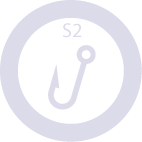







 Please click on the colored SAP Strategy icon to obtain more information on the specific SAP Actions this initiative is contributing to1. Enhance the regional governance arrangements for the protection of the marine environment
Please click on the colored SAP Strategy icon to obtain more information on the specific SAP Actions this initiative is contributing to1. Enhance the regional governance arrangements for the protection of the marine environment
1.4. Enhance the compliance and enforcement capacity of the regional, sub-regional and national governance arrangements1.7. Establish and/or enhance the capacity within and among arrangements to undertake and mainstream valuation of ecosystem goods and services in regional, sub-regional and national decision-making and policy development2. Enhance the regional governance arrangements for sustainable fisheries
3. Establish and operationalise a regional policy coordination mechanismfor ocean governance, with initial focus on shared Living Marine Resources
4. Enhance the governance arrangements for ecosystem-based management for reefs and associated ecosystems
4A. Enhance the governance arrangementsfor implementing an ecosystem approach for spiny lobster fisheries
4B. Enhance the governance arrangementsfor implementing an ecosystem approach for queen conch fisheries
5. Enhance the governance arrangements for implementing an ecosystem approach for pelagic fisheries
5A. Enhance the governance arrangements for implementing the ecosystem approach for flyingfish fisheries
5B. Enhance the governance arrangementsfor implementing an ecosystem approach for large pelagics fisheries
6. Implement EBM/EAF of the Guianas-Brazil continental shelf with special reference to the shrimp and groundfish fishery
Contributions to the 2030 UN Sustainable Development Agenda (SDG’s)












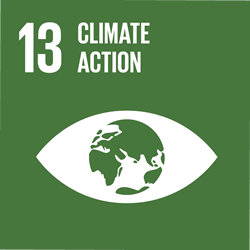




 Please click on the SDG14 colored icon to see to which specific SDG14 targets this initiative is contributing.1. End poverty in all its forms everywhere
Please click on the SDG14 colored icon to see to which specific SDG14 targets this initiative is contributing.1. End poverty in all its forms everywhere
2 End hunger, achieve food security and improved nutrition and promote sustainable agriculture
3 Ensure healthy lives and promote well-being for all at all ages
4 Ensure inclusive and equitable quality education and promote lifelong learning opportunities for all
5 Achieve gender equality and empower all women and girls
6 Ensure availability and sustainable management of water and sanitation for all
7 Ensure access to affordable, reliable, sustainable and modern energy for all
8 Promote sustained, inclusive and sustainable economic growth, full and productive employment and decent work for all
9 Build resilient infrastructure, promote inclusive and sustainable industrialization and foster innovation
10 Reduce inequality within and among countries
11 Make cities and human settlements inclusive, safe, resilient and sustainable
12 Ensure sustainable consumption and production patterns
13 Take urgent action to combat climate change and its impacts
13.1 Strengthen resilience and adaptive capacity to climate-related hazards and natural disasters in all countries14 Conserve and sustainably use the oceans, seas and marine resources for sustainable development
14.7 By 2030, increase the economic benefits to Small Island developing States and least developed countries from the sustainable use of marine resources, including through sustainable management of fisheries, aquaculture and tourism14.a Increase scientific knowledge, develop research capacity and transfer marine technology, taking into account the Intergovernmental Oceanographic Commission Criteria and Guidelines on the Transfer of Marine Technology, in order to improve ocean health and to enhance the contribution of marine biodiversity to the development of developing countries, in particular small island developing States and least developed countries15 Protect, restore and promote sustainable use of terrestrial ecosystems, sustainably manage forests, combat desertification, and halt and reverse land degradation and halt biodiversity loss
16 Promote peaceful and inclusive societies for sustainable development, provide access to justice for all and build effective, accountable and inclusive institutions at all levels
Other Regional and Global Commitments
Regional Emerging Issues
NCAVES Natural Capital Accounting and Valuation of Ecosystem Services
Contabilidad del capital natural y valoración de los servicios de los ecosistemasBrief Description:To engage at national level with five strategic partners where biodiversity is at stake, so as to enhance their knowledge of valuation of ecosystems and their services. Building on an internationally-agreed methodology and EU-agreed methodology where relevant, and on the development of national competences, the project will initiate pilot testing in each country. The outputs are expected to influence policy-makers at national, regional and local level to take action in line with national environmental priorities, international commitments and EU priorities where relevant. In addition, the project will ensure awareness-raising for the private sector and the civil society.Comprometerse a nivel nacional con cinco socios estratégicos donde la biodiversidad está en juego, a fin de mejorar su conocimiento sobre la valoración de los ecosistemas y sus servicios. Sobre la base de una metodología acordada internacionalmente y una metodología acordada por la UE cuando sea pertinente, y sobre el desarrollo de competencias nacionales, el proyecto iniciará pruebas piloto en cada país. Se espera que los resultados influyan en los responsables políticos a nivel nacional, regional y local para que actúen en consonancia con las prioridades medioambientales nacionales, los compromisos internacionales y las prioridades de la UE, cuando proceda. Además, el proyecto garantizará la sensibilización del sector privado y la sociedad civil.Lead Organization: UN-Statistics DivisionDonor: European ComissionProject ID:Geographic Scope: Multicountry (global)Project Status: OngoingLast Update: 19/01/2021
Start Date: 2016-08-01
End Date: 2021-12-01Project Profile Manager: Stefan Schweinfest
Contact Email: seea@un.org
Contact Phone:Partners: Convention of Biological Diversity, the Economics of Ecosystem and BiodiversityGrant (USD): $7,502,705.00Total co-financing (USD): $0.00(Co) financing not originating from GEF:Participating Country(s):Brazil
Mexico
China
India
South Africa
Contributions to the 10-year CLME+ Strategic Action Programme (2015-2025)









 Please click on the colored SAP Strategy icon to obtain more information on the specific SAP Actions this initiative is contributing to1. Enhance the regional governance arrangements for the protection of the marine environment
Please click on the colored SAP Strategy icon to obtain more information on the specific SAP Actions this initiative is contributing to1. Enhance the regional governance arrangements for the protection of the marine environment
1.6. Enhance the capacity within and among arrangements to undertake and mainstream lessons learned and findings from monitoring,science and research in regional, sub-regional and national decision-making1.7. Establish and/or enhance the capacity within and among arrangements to undertake and mainstream valuation of ecosystem goods and services in regional, sub-regional and national decision-making and policy development1.9. Strengthen the capacity of the regional and sub-regional arrangements to support countries in becoming parties to relevant international and regional agreements and complying with their global and regional commitments towards the conservation of the marine environment (including the support to update and harmonize national legislation and regulations)1.10. Establish and/or enhance the data and information quality and collection and management capacity of the regional, sub-regional and nationalgovernance arrangements for the protection of the marine environment, including through the establishment of public-private partnerships2. Enhance the regional governance arrangements for sustainable fisheries
3. Establish and operationalise a regional policy coordination mechanismfor ocean governance, with initial focus on shared Living Marine Resources
4. Enhance the governance arrangements for ecosystem-based management for reefs and associated ecosystems
4.4. Coordinate and enhance (sub-)regional and national efforts for the conservation of the biodiversity of reef and associated habitats, including through the strengthening of networks of marine protected areas (MPAs), and initiatives for sustainable reef fisheries* such as programmes dealing with alien invasive species4.6. Establish and/or enhance the institutional structure and capacity of (sub-)regional and national arrangements for implementing management and conservation measures for reef ecosystems4A. Enhance the governance arrangementsfor implementing an ecosystem approach for spiny lobster fisheries
4B. Enhance the governance arrangementsfor implementing an ecosystem approach for queen conch fisheries
5. Enhance the governance arrangements for implementing an ecosystem approach for pelagic fisheries
5A. Enhance the governance arrangements for implementing the ecosystem approach for flyingfish fisheries
5B. Enhance the governance arrangementsfor implementing an ecosystem approach for large pelagics fisheries
6. Implement EBM/EAF of the Guianas-Brazil continental shelf with special reference to the shrimp and groundfish fishery
Contributions to the 2030 UN Sustainable Development Agenda (SDG’s)





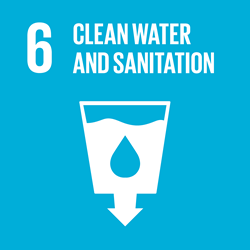








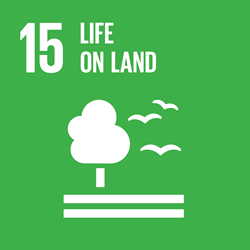


 Please click on the SDG14 colored icon to see to which specific SDG14 targets this initiative is contributing.1. End poverty in all its forms everywhere
Please click on the SDG14 colored icon to see to which specific SDG14 targets this initiative is contributing.1. End poverty in all its forms everywhere
2 End hunger, achieve food security and improved nutrition and promote sustainable agriculture
3 Ensure healthy lives and promote well-being for all at all ages
4 Ensure inclusive and equitable quality education and promote lifelong learning opportunities for all
5 Achieve gender equality and empower all women and girls
6 Ensure availability and sustainable management of water and sanitation for all
6.1 By 2030, achieve universal and equitable access to safe and affordable drinking water for all7 Ensure access to affordable, reliable, sustainable and modern energy for all
8 Promote sustained, inclusive and sustainable economic growth, full and productive employment and decent work for all
8.1 Sustain per capita economic growth in accordance with national circumstances and, in particular, at least 7 per cent gross domestic product growth per annum in the least developed countries9 Build resilient infrastructure, promote inclusive and sustainable industrialization and foster innovation
10 Reduce inequality within and among countries
11 Make cities and human settlements inclusive, safe, resilient and sustainable
12 Ensure sustainable consumption and production patterns
13 Take urgent action to combat climate change and its impacts
14 Conserve and sustainably use the oceans, seas and marine resources for sustainable development
14.7 By 2030, increase the economic benefits to Small Island developing States and least developed countries from the sustainable use of marine resources, including through sustainable management of fisheries, aquaculture and tourism14.c Enhance the conservation and sustainable use of oceans and their resources by implementing international law as reflected in UNCLOS, which provides the legal framework for the conservation and sustainable use of oceans and their resources, as recalled in paragraph 158 of The Future We Want15 Protect, restore and promote sustainable use of terrestrial ecosystems, sustainably manage forests, combat desertification, and halt and reverse land degradation and halt biodiversity loss
15.1 By 2020, ensure the conservation, restoration and sustainable use of terrestrial and inland freshwater ecosystems and their services, in particular forests, wetlands, mountains and drylands, in line with obligations under international agreements16 Promote peaceful and inclusive societies for sustainable development, provide access to justice for all and build effective, accountable and inclusive institutions at all levels
Other Regional and Global Commitments
Regional Emerging Issues
Updating Suriname's capture fisheries legal framework
Actualización del marco legal de la pesca de captura de SurinamBrief Description:The project was the development of a strengthened legal framework that would enable stakeholders and relevant actors to manage the fisheries sector more efficiently and sustainably and that would be implemented by stakeholders and other actors, including the Government. The project achieved its objective by supporting the Government to build capacity among key stakeholders in fisheries legislation, in order to prevent, deter and eliminate illegal, unreported and unregulated fishing. It involved stakeholders in the legislative process through an inception workshop, field consultations, a legal expert group and a validation workshop.El proyecto desarrollo un marco legal fortalecido que permitio a las partes interesadas y actores relevantes gestionar el sector pesquero de manera más eficiente y sostenible y que sera implementado por las partes interesadas y otros actores, incluido el Gobierno. El proyecto logró su objetivo apoyando al Gobierno en la creación de capacidad entre los principales interesados en la legislación pesquera, a fin de prevenir, disuadir y eliminar la pesca ilegal, no declarada y no reglamentada. Involucró a las partes interesadas en el proceso legislativo a través de un taller inicial, consultas de campo, un grupo de expertos legales y un taller de validación.Lead Organization: Ministry of Agriculture, Animal Husbandry and FisheriesDonor: FAOProject ID: TCP/SUR/3502Geographic Scope: NationalProject Status: CompletedLast Update: 13/01/2021
Start Date: 2015-09-01
End Date: 2017-12-01Project Profile Manager: Manuela Cuvi Rodriguez
Contact Email: Manuela.Cuvi@fao.org
Contact Phone:Partners:Grant (USD): $116,000.00Total co-financing (USD): $0.00(Co) financing not originating from GEF:Participating Country(s):Suriname
Contributions to the 10-year CLME+ Strategic Action Programme (2015-2025)






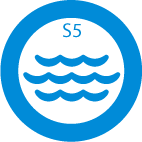


 Please click on the colored SAP Strategy icon to obtain more information on the specific SAP Actions this initiative is contributing to1. Enhance the regional governance arrangements for the protection of the marine environment
Please click on the colored SAP Strategy icon to obtain more information on the specific SAP Actions this initiative is contributing to1. Enhance the regional governance arrangements for the protection of the marine environment
1.4. Enhance the compliance and enforcement capacity of the regional, sub-regional and national governance arrangements2. Enhance the regional governance arrangements for sustainable fisheries
2.4. Establish and/or enhance the capacity of the regional, sub-regional and national governance arrangements for the broader involvement of society in the implementation of the EBM/EAF approach (IGOs, NGOs, CBOs, private sector...)2.13. Establish and/or enhance the data and information quality and collection and management capacity of the regional, sub-regional and national fisheries governance arrangements, including through the establishment of public-private partnerships3. Establish and operationalise a regional policy coordination mechanismfor ocean governance, with initial focus on shared Living Marine Resources
4. Enhance the governance arrangements for ecosystem-based management for reefs and associated ecosystems
4A. Enhance the governance arrangementsfor implementing an ecosystem approach for spiny lobster fisheries
4B. Enhance the governance arrangementsfor implementing an ecosystem approach for queen conch fisheries
5. Enhance the governance arrangements for implementing an ecosystem approach for pelagic fisheries
5.4. Establish and/or enhance the capacity of regional, sub-regional and national arrangements for implementing management measures5A. Enhance the governance arrangements for implementing the ecosystem approach for flyingfish fisheries
5B. Enhance the governance arrangementsfor implementing an ecosystem approach for large pelagics fisheries
6. Implement EBM/EAF of the Guianas-Brazil continental shelf with special reference to the shrimp and groundfish fishery
Contributions to the 2030 UN Sustainable Development Agenda (SDG’s)











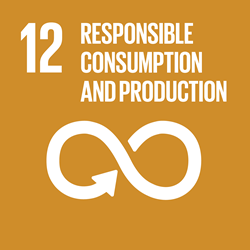



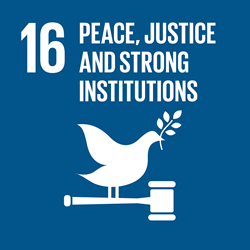

 Please click on the SDG14 colored icon to see to which specific SDG14 targets this initiative is contributing.1. End poverty in all its forms everywhere
Please click on the SDG14 colored icon to see to which specific SDG14 targets this initiative is contributing.1. End poverty in all its forms everywhere
1.1 By 2030, eradicate extreme poverty for all people everywhere, currently measured as people living on less than $1.25 a day2 End hunger, achieve food security and improved nutrition and promote sustainable agriculture
2.1 By 2030, end hunger and ensure access by all people, in particular the poor and people in vulnerable situations, including infants, to safe, nutritious and sufficient food all year round3 Ensure healthy lives and promote well-being for all at all ages
4 Ensure inclusive and equitable quality education and promote lifelong learning opportunities for all
5 Achieve gender equality and empower all women and girls
6 Ensure availability and sustainable management of water and sanitation for all
7 Ensure access to affordable, reliable, sustainable and modern energy for all
8 Promote sustained, inclusive and sustainable economic growth, full and productive employment and decent work for all
8.1 Sustain per capita economic growth in accordance with national circumstances and, in particular, at least 7 per cent gross domestic product growth per annum in the least developed countries9 Build resilient infrastructure, promote inclusive and sustainable industrialization and foster innovation
10 Reduce inequality within and among countries
11 Make cities and human settlements inclusive, safe, resilient and sustainable
12 Ensure sustainable consumption and production patterns
12.1 Implement the 10-year framework of programmes on sustainable consumption and production, all countries taking action, with developed countries taking the lead, taking into account the development and capabilities of developing countries13 Take urgent action to combat climate change and its impacts
14 Conserve and sustainably use the oceans, seas and marine resources for sustainable development
14.4 By 2020, effectively regulate harvesting and end overfishing, illegal, unreported and unregulated fishing and destructive fishing practices and implement science-based management plans, in order to restore fish stocks in the shortest time feasible, at least to levels that can produce maximum sustainable yield as determined by their biological characteristics14.5 By 2020, conserve at least 10 per cent of coastal and marine areas, consistent with national and international law and based on the best available scientific information15 Protect, restore and promote sustainable use of terrestrial ecosystems, sustainably manage forests, combat desertification, and halt and reverse land degradation and halt biodiversity loss
16 Promote peaceful and inclusive societies for sustainable development, provide access to justice for all and build effective, accountable and inclusive institutions at all levels
16.1 Significantly reduce all forms of violence and related death rates everywhere
Other Regional and Global Commitments
Regional Emerging Issues
Biodiversity Conservation in Carriacou through Nesting Sea Turtles and Wetland Bird Monitoring
Conservación de la biodiversidad en Carriacou mediante la anidación de tortugas marinas y el monitoreo de aves de humedalesBrief Description:The project goal is to conserve Carriacou’s nesting sea turtle population and migratory, resident, endemic wetland birds and their habitat in the Petit Carenage nature hot spot, by consistent monitoring, conservation strategies and developing the capacity of community groups in related conservation and income generating eco-tourism sustainable activities (e.g.: bird watching, grocery bags production with recycled waste, etc.). Without these activities the Carriacou nesting sea turtle population, the island’s biodiversity and endangered and rare bird species will suffer critical losses. The project will develop a database and yearly report on biodiversity, including nesting turtles, birds and other wildlife species recorded in their habitats in Carriacou. Professional quality photos-video of nesting turtles and birds taken by a professional photographer will be included in the project website/blog.El objetivo del proyecto es conservar la población de tortugas marinas que anidan en Carriacou y las aves migratorias, residentes y endémicas de los humedales y su hábitat en el punto caliente de la naturaleza de Petit Carenage, mediante un monitoreo constante, estrategias de conservación y el desarrollo de la capacidad de los grupos comunitarios en la conservación relacionada y la generación de ingresos ecológicos. -actividades turísticas sostenibles (ej .: observación de aves, producción de bolsas de la compra con residuos reciclados, etc.). Sin estas actividades, la población de tortugas marinas que anidan en Carriacou, la biodiversidad de la isla y las especies de aves raras y en peligro de extinción sufrirán pérdidas críticas. El proyecto desarrollará una base de datos y un informe anual sobre la biodiversidad, incluidas las tortugas anidantes, las aves y otras especies de vida silvestre registradas en sus hábitats en Carriacou. En el sitio web / blog del proyecto se incluirán fotografías y videos de calidad profesional de las tortugas y aves que anidan, tomados por un fotógrafo profesional.Lead Organization: UNDPDonor: GEF-SGPProject ID: GRD/SGP/OP5/Y4/CORE/CD/15/08Geographic Scope: NationalProject Status: CompletedLast Update: 13/01/2021
Start Date: 2015-09-01
End Date: 2017-11-01Project Profile Manager: Kadijah Paula Edwards
Contact Email: Kadijah.edwards@undp.org
Contact Phone:Partners: WIDECAST, YWF KIDO Foundation,the Bird Watching ClubGrant (USD): $27,083.00Total co-financing (USD): $32,713.00(Co) financing not originating from GEF:Participating Country(s):Grenada
Contributions to the 10-year CLME+ Strategic Action Programme (2015-2025)









 Please click on the colored SAP Strategy icon to obtain more information on the specific SAP Actions this initiative is contributing to1. Enhance the regional governance arrangements for the protection of the marine environment
Please click on the colored SAP Strategy icon to obtain more information on the specific SAP Actions this initiative is contributing to1. Enhance the regional governance arrangements for the protection of the marine environment
1.6. Enhance the capacity within and among arrangements to undertake and mainstream lessons learned and findings from monitoring,science and research in regional, sub-regional and national decision-making1.10. Establish and/or enhance the data and information quality and collection and management capacity of the regional, sub-regional and nationalgovernance arrangements for the protection of the marine environment, including through the establishment of public-private partnerships1.11. Establish and/or enhance the capacity of the regional, sub –regional and national governance arrangements for the monitoring, assessment and reporting on the state of the marine environment2. Enhance the regional governance arrangements for sustainable fisheries
3. Establish and operationalise a regional policy coordination mechanismfor ocean governance, with initial focus on shared Living Marine Resources
3.7. Facilitate the preparation of data and information products and the uptake of monitoring and research outputs by (sub)regional and national science-policy interfaces4. Enhance the governance arrangements for ecosystem-based management for reefs and associated ecosystems
4A. Enhance the governance arrangementsfor implementing an ecosystem approach for spiny lobster fisheries
4B. Enhance the governance arrangementsfor implementing an ecosystem approach for queen conch fisheries
5. Enhance the governance arrangements for implementing an ecosystem approach for pelagic fisheries
5A. Enhance the governance arrangements for implementing the ecosystem approach for flyingfish fisheries
5B. Enhance the governance arrangementsfor implementing an ecosystem approach for large pelagics fisheries
6. Implement EBM/EAF of the Guianas-Brazil continental shelf with special reference to the shrimp and groundfish fishery
Contributions to the 2030 UN Sustainable Development Agenda (SDG’s)

















 Please click on the SDG14 colored icon to see to which specific SDG14 targets this initiative is contributing.1. End poverty in all its forms everywhere
Please click on the SDG14 colored icon to see to which specific SDG14 targets this initiative is contributing.1. End poverty in all its forms everywhere
2 End hunger, achieve food security and improved nutrition and promote sustainable agriculture
3 Ensure healthy lives and promote well-being for all at all ages
4 Ensure inclusive and equitable quality education and promote lifelong learning opportunities for all
5 Achieve gender equality and empower all women and girls
6 Ensure availability and sustainable management of water and sanitation for all
7 Ensure access to affordable, reliable, sustainable and modern energy for all
8 Promote sustained, inclusive and sustainable economic growth, full and productive employment and decent work for all
9 Build resilient infrastructure, promote inclusive and sustainable industrialization and foster innovation
10 Reduce inequality within and among countries
11 Make cities and human settlements inclusive, safe, resilient and sustainable
12 Ensure sustainable consumption and production patterns
13 Take urgent action to combat climate change and its impacts
14 Conserve and sustainably use the oceans, seas and marine resources for sustainable development
14.2 By 2020, sustainably manage and protect marine and coastal ecosystems to avoid significant adverse impacts, including by strengthening their resilience, and take action for their restoration in order to achieve healthy and productive oceans14.5 By 2020, conserve at least 10 per cent of coastal and marine areas, consistent with national and international law and based on the best available scientific information14.a Increase scientific knowledge, develop research capacity and transfer marine technology, taking into account the Intergovernmental Oceanographic Commission Criteria and Guidelines on the Transfer of Marine Technology, in order to improve ocean health and to enhance the contribution of marine biodiversity to the development of developing countries, in particular small island developing States and least developed countries15 Protect, restore and promote sustainable use of terrestrial ecosystems, sustainably manage forests, combat desertification, and halt and reverse land degradation and halt biodiversity loss
16 Promote peaceful and inclusive societies for sustainable development, provide access to justice for all and build effective, accountable and inclusive institutions at all levels
Other Regional and Global Commitments
Regional Emerging Issues
Towards a Caribbean Blue Revolution
Hacia una revolución azul caribeñaBrief Description:Through the project, the countries developed the capacity to upscale and implement further aquaponics; and the private sector was well engaged to become an engine of positive change. Aquaculture and aquaponics demonstration and training facilities were established and operating at private farms. The demonstration farms are functioning well and are producing vegetables and fish for sale; and will provide long-term training opportunities in each country. A review of the aquaculture situation, available resources, value chains and opportunities for growth in Antigua and Barbuda, Barbados, and Saint Kitts and Nevis was carried out; and a report was produced for each country. These reports and overall assessments of the aquaculture value chain will be vital for the preparation of aquaculture strategic plans. The aquaculture value chain was strengthened through activities that were implemented in the project countries, focusing on small and medium-sized enterprises (SMEs) to support the financial sustainability of aquaponic businesses. These included a regional workshop for participants from the four project countries, which improved their ability to operate aquaponic businesses, identify and exploit markets, and engage with other members of the value chain. In addition, major constraints to the supply chain were identified, which should provide guidance to future interventions of FAO, development agencies or government actors. Aquaculture and fisheries value chain training materials for specific use in the Caribbean region were developed; as well as awareness-raising brochures and capacity-building books on aquaponics. A “master document” was prepared, which portrays the historical production, and social, financial and environmental aspects of aquaculture in the Caribbean; and is the first document of its kind. On the basis of this draft document, supporting documents are being prepared for regional partners and investment entities.A través del proyecto, los países desarrollaron capacidades para mejorar e implementar más acuaponía; y se comprometio al sector privado paraque se converta en un motor de cambio positivo. Se establecieron y operaron instalaciones de demostración y capacitación en acuicultura y acuaponía en granjas privadas. Las granjas de demostración funcionan bien y producen verduras y pescado para la venta; y se brindará oportunidades de capacitación a largo plazo en cada país. Se llevó a cabo una revisión de la situación de la acuicultura, los recursos disponibles, las cadenas de valor y las oportunidades de crecimiento en Antigua y Barbuda, Barbados y Saint Kitts y Nevis; y se elaboró un informe para cada país. Estos informes y evaluaciones generales de la cadena de valor de la acuicultura serán vitales para la preparación de planes estratégicos de acuicultura. La cadena de valor de la acuicultura se fortaleció a través de actividades que se implementaron en los países del proyecto, enfocándose en las pequeñas y medianas empresas (PyMEs) para apoyar la sostenibilidad financiera de las empresas acuapónicas. Estos incluyeron un taller regional para participantes de los cuatro países del proyecto, que mejoró su capacidad para operar negocios acuapónicos, identificar y explotar mercados e interactuar con otros miembros de la cadena de valor. Además, se identificaron importantes limitaciones a la cadena de suministro, que deberían servir de guía para futuras intervenciones de la FAO, agencias de desarrollo o actores gubernamentales. Se desarrollaron materiales de capacitación sobre cadenas de valor de la acuicultura y la pesca para uso específico en la región del Caribe; así como folletos de sensibilización y libros de creación de capacidad en acuaponía. Se preparó un “documento maestro”, que describe la producción histórica y los aspectos sociales, financieros y ambientales de la acuicultura en el Caribe; y es el primer documento de este tipo. Sobre la base de este documento preliminar, se están preparando documentos de respaldo para socios regionales y entidades de inversión.Lead Organization: FAODonor: FAOProject ID: TCP/SLC/3601Geographic Scope: Multicountry (regional)Project Status: CompletedLast Update: 13/01/2021
Start Date: 2016-08-16
End Date: 2019-06-30Project Profile Manager: Raymon Vananrooy
Contact Email: Raymon.VanAnrooy@fao.org
Contact Phone:Partners: Governments of Antigua and Barbuda, Bahamas, Barbados, Grenada and St. Kitts and Nevis, Indies Greens, Red Acuacultura de las AmericasGrant (USD): $463,000.00Total co-financing (USD): $0.00(Co) financing not originating from GEF:Participating Country(s):Bahamas
Barbados
Antigua and Barbuda
Saint Kitts and Nevis
Contributions to the 10-year CLME+ Strategic Action Programme (2015-2025)
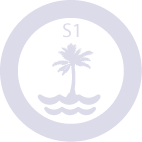








 Please click on the colored SAP Strategy icon to obtain more information on the specific SAP Actions this initiative is contributing to1. Enhance the regional governance arrangements for the protection of the marine environment
Please click on the colored SAP Strategy icon to obtain more information on the specific SAP Actions this initiative is contributing to1. Enhance the regional governance arrangements for the protection of the marine environment
2. Enhance the regional governance arrangements for sustainable fisheries
2.8. Coordinate the development and implementation of regional, sub-regional and national initiatives to improve welfare and livelihoods through the provision of Decent Work(including through the development of alternative livelihoods, capacity building and pilot initiatives)3. Establish and operationalise a regional policy coordination mechanismfor ocean governance, with initial focus on shared Living Marine Resources
4. Enhance the governance arrangements for ecosystem-based management for reefs and associated ecosystems
4.5. Develop and implement initiatives for sustainable livelihoods by building capacity for diversification, fostering and facilitating viable alternative sources of Decent Work and/or improved incomes, and creating addedvalue (e.g. through marketing and sales)4A. Enhance the governance arrangementsfor implementing an ecosystem approach for spiny lobster fisheries
4B. Enhance the governance arrangementsfor implementing an ecosystem approach for queen conch fisheries
5. Enhance the governance arrangements for implementing an ecosystem approach for pelagic fisheries
5A. Enhance the governance arrangements for implementing the ecosystem approach for flyingfish fisheries
5B. Enhance the governance arrangementsfor implementing an ecosystem approach for large pelagics fisheries
6. Implement EBM/EAF of the Guianas-Brazil continental shelf with special reference to the shrimp and groundfish fishery
Contributions to the 2030 UN Sustainable Development Agenda (SDG’s)

















 Please click on the SDG14 colored icon to see to which specific SDG14 targets this initiative is contributing.1. End poverty in all its forms everywhere
Please click on the SDG14 colored icon to see to which specific SDG14 targets this initiative is contributing.1. End poverty in all its forms everywhere
1.1 By 2030, eradicate extreme poverty for all people everywhere, currently measured as people living on less than $1.25 a day2 End hunger, achieve food security and improved nutrition and promote sustainable agriculture
2.1 By 2030, end hunger and ensure access by all people, in particular the poor and people in vulnerable situations, including infants, to safe, nutritious and sufficient food all year round3 Ensure healthy lives and promote well-being for all at all ages
4 Ensure inclusive and equitable quality education and promote lifelong learning opportunities for all
5 Achieve gender equality and empower all women and girls
6 Ensure availability and sustainable management of water and sanitation for all
7 Ensure access to affordable, reliable, sustainable and modern energy for all
8 Promote sustained, inclusive and sustainable economic growth, full and productive employment and decent work for all
8.1 Sustain per capita economic growth in accordance with national circumstances and, in particular, at least 7 per cent gross domestic product growth per annum in the least developed countries9 Build resilient infrastructure, promote inclusive and sustainable industrialization and foster innovation
10 Reduce inequality within and among countries
11 Make cities and human settlements inclusive, safe, resilient and sustainable
12 Ensure sustainable consumption and production patterns
12.1 Implement the 10-year framework of programmes on sustainable consumption and production, all countries taking action, with developed countries taking the lead, taking into account the development and capabilities of developing countries13 Take urgent action to combat climate change and its impacts
14 Conserve and sustainably use the oceans, seas and marine resources for sustainable development
14.7 By 2030, increase the economic benefits to Small Island developing States and least developed countries from the sustainable use of marine resources, including through sustainable management of fisheries, aquaculture and tourism15 Protect, restore and promote sustainable use of terrestrial ecosystems, sustainably manage forests, combat desertification, and halt and reverse land degradation and halt biodiversity loss
16 Promote peaceful and inclusive societies for sustainable development, provide access to justice for all and build effective, accountable and inclusive institutions at all levels
Other Regional and Global Commitments
Regional Emerging Issues
Ecosystem based adaptation approach to Caribbean spiny lobster fisheries
Enfoque de adaptación basado en ecosistemas para la pesca de Langosta Espinosa en el CaribeBrief Description:To increase the regional and national level capacities towards sustainability and climate resilience of the Caribbean Spiny lobster fishery in SICA countries by establishing integrated, enhanced and harmonized governance arrangements, enhancing fisheries data, and curtail IUU fishing. Much of the effort in achieving this goal is aligned with the adoption and the implementation of a revised Caribbean Lobster Regional Management Plan. We will refine and adapt OIRSAs existing electronic traceability system, adopting it for the spiny lobster fishery. There is already a regional traceability working group that is currently facilitating this process. This project will pilot at least 1 full electronic traceability system (boat to buyer) in the industrial fishery and partial electronic traceability (plant to buyer) for the artisanal lobster fishery. Each system will be based on a regionally approved criterion to capture specific Key Data Elements (KDEs) which already exist.Aumentar las capacidades a nivel regional y nacional hacia la sostenibilidad y la resiliencia climática de la pesquería de langosta espinosa del Caribe en los países del SICA mediante el establecimiento de acuerdos de gobernanza integrados, mejorados y armonizados, mejorando los datos pesqueros y reduciendo la pesca INDNR. Gran parte del esfuerzo para lograr este objetivo está alineado con la adopción e implementación de un Plan de Manejo Regional de Langosta del Caribe revisado. Refinaremos y adaptaremos el sistema de trazabilidad electrónico existente de OIRSA, adoptándolo para la pesquería de langosta espinosa. Ya existe un grupo de trabajo regional sobre trazabilidad que actualmente está facilitando este proceso. Este proyecto pondrá a prueba al menos 1 sistema de trazabilidad electrónico completo (barco al comprador) en la pesquería industrial y trazabilidad electrónica parcial (de la planta al comprador) para la pesca artesanal de langosta. Cada sistema se basará en un criterio aprobado regionalmente para capturar elementos de datos clave (KDE) específicos que ya existen.Lead Organization: OSPESCADonor: US Depto State, TNCProject ID:Geographic Scope: Multicountry (regional)Project Status: CompletedLast Update: 13/01/2021
Start Date: 2018-08-17
End Date: 2020-03-04Project Profile Manager: Reinaldo Morales
Contact Email: rmorales@sica.int
Contact Phone:Partners: TNCGrant (USD): $200,000.00Total co-financing (USD): $506,000.00(Co) financing not originating from GEF:Participating Country(s):Belize
Honduras
Nicaragua
Contributions to the 10-year CLME+ Strategic Action Programme (2015-2025)









 Please click on the colored SAP Strategy icon to obtain more information on the specific SAP Actions this initiative is contributing to1. Enhance the regional governance arrangements for the protection of the marine environment
Please click on the colored SAP Strategy icon to obtain more information on the specific SAP Actions this initiative is contributing to1. Enhance the regional governance arrangements for the protection of the marine environment
1.5. Establish and/or enhance the capacity of the regional,sub-regional and national governance arrangements for the involvement of civil society in the implementation of the EBM/EAF approach (IGOs,NGOs,CBOs,private sector...)1.9. Strengthen the capacity of the regional and sub-regional arrangements to support countries in becoming parties to relevant international and regional agreements and complying with their global and regional commitments towards the conservation of the marine environment (including the support to update and harmonize national legislation and regulations)1.10. Establish and/or enhance the data and information quality and collection and management capacity of the regional, sub-regional and nationalgovernance arrangements for the protection of the marine environment, including through the establishment of public-private partnerships1.11. Establish and/or enhance the capacity of the regional, sub –regional and national governance arrangements for the monitoring, assessment and reporting on the state of the marine environment2. Enhance the regional governance arrangements for sustainable fisheries
2.5. Establish and/or enhance the capacity of the regional, sub-regional and national fisheries institutions to develop and implement harmonized management and conservation measures, with special focus on Illegal, Unreported and Unregulated Fishing (IUU) and Monitoring, Control & Surveillance (MCS)3. Establish and operationalise a regional policy coordination mechanismfor ocean governance, with initial focus on shared Living Marine Resources
4. Enhance the governance arrangements for ecosystem-based management for reefs and associated ecosystems
4A. Enhance the governance arrangementsfor implementing an ecosystem approach for spiny lobster fisheries
4A.2. Evaluate and expand, as applicable,the geographic scope of the governance arrangement operated by OSPESCA, taking into consideration both the perspectives of species range (ecosystem approach) and of common markets4B. Enhance the governance arrangementsfor implementing an ecosystem approach for queen conch fisheries
5. Enhance the governance arrangements for implementing an ecosystem approach for pelagic fisheries
5A. Enhance the governance arrangements for implementing the ecosystem approach for flyingfish fisheries
5B. Enhance the governance arrangementsfor implementing an ecosystem approach for large pelagics fisheries
6. Implement EBM/EAF of the Guianas-Brazil continental shelf with special reference to the shrimp and groundfish fishery
Contributions to the 2030 UN Sustainable Development Agenda (SDG’s)

















 Please click on the SDG14 colored icon to see to which specific SDG14 targets this initiative is contributing.1. End poverty in all its forms everywhere
Please click on the SDG14 colored icon to see to which specific SDG14 targets this initiative is contributing.1. End poverty in all its forms everywhere
2 End hunger, achieve food security and improved nutrition and promote sustainable agriculture
3 Ensure healthy lives and promote well-being for all at all ages
4 Ensure inclusive and equitable quality education and promote lifelong learning opportunities for all
5 Achieve gender equality and empower all women and girls
6 Ensure availability and sustainable management of water and sanitation for all
7 Ensure access to affordable, reliable, sustainable and modern energy for all
8 Promote sustained, inclusive and sustainable economic growth, full and productive employment and decent work for all
9 Build resilient infrastructure, promote inclusive and sustainable industrialization and foster innovation
10 Reduce inequality within and among countries
11 Make cities and human settlements inclusive, safe, resilient and sustainable
12 Ensure sustainable consumption and production patterns
13 Take urgent action to combat climate change and its impacts
14 Conserve and sustainably use the oceans, seas and marine resources for sustainable development
14.4 By 2020, effectively regulate harvesting and end overfishing, illegal, unreported and unregulated fishing and destructive fishing practices and implement science-based management plans, in order to restore fish stocks in the shortest time feasible, at least to levels that can produce maximum sustainable yield as determined by their biological characteristics15 Protect, restore and promote sustainable use of terrestrial ecosystems, sustainably manage forests, combat desertification, and halt and reverse land degradation and halt biodiversity loss
16 Promote peaceful and inclusive societies for sustainable development, provide access to justice for all and build effective, accountable and inclusive institutions at all levels
Other Regional and Global Commitments
Regional Emerging Issues
Support for regional governance to prevent, discourage, and eliminate illegal, unreported and unregulated fishing in CAFTA-DR countries
Apoyo a la gobernanza regional para prevenir, desalentar y eliminar la pesca ilegal, no declarada y no reglamentada en los países del CAFTA-DRBrief Description:The project seeks to strengthen the capacity of national and regional institutions to improve coordination in the application of regional regulations to prevent illegal, unreported and unregulated fishing in the countries of the Free Trade Agreement between the United States, Central America and the Dominican Republic ( CAFTA-DR). OSPESCA will work with the national fisheries authorities of the CAFTA-DR countries in the execution of project activities and in coordination with the United States Department of State and other partners such as the National Oceanic and Atmospheric Administration (NOAA). The fisheries registry of Regulation OSP-01-09 of the Central American Integrated Fisheries and Aquaculture Registry System (SIRPAC), an inspection program and the profile for the selection of inspectors and a training plan for regional inspectors designed and implemented has been updated.El proyecto busca fortalecer la capacidad de las instituciones nacionales y regionales a mejorar la coordinación en la aplicación de regulaciones regionales para prevenir la pesca ilegal, no declarada y no reglamentada en los países del Tratado de Libre Comercio entre Estados Unidos, Centroamérica y República Dominicana (CAFTA-DR). OSPESCA trabajará con las autoridades nacionales de pesca de los países del CAFTA-DR en la ejecución de las actividades del proyecto y en coordinación con el Departamento de Estado de los Estados Unidos y otros socios como la Administración Nacional Oceánica y Atmosférica (NOAA). Se ha actualizado el registro pesquero del Reglamento OSP-01-09 del Sistema Integrado de Registro Pesquero y Acuícola Centroamericano (SIRPAC), un programa de inspección y el perfil para la selección de inspectores y un plan de capacitación para inspectores regionales diseñado e implementado.Lead Organization: OSPESCADonor: State Depto, USAProject ID: S-LMAQM-15-CA-1266Geographic Scope: Multicountry (regional)Project Status: OngoingLast Update: 13/01/2021
Start Date: 2015-01-10
End Date: 2025-01-01Website:https://www.sica.int/busqueda/Proyectos.aspx?IDItem=102074&IDCat=23&IdEnt=401&Idm=2&IdmStyle=2Project Profile Manager: Reinaldo Morales
Contact Email: rmorales@sica.int
Contact Phone:Partners:Grant (USD): $80,000.00Total co-financing (USD): $0.00(Co) financing not originating from GEF:Participating Country(s):Costa Rica
Guatemala
Honduras
Panama
Nicaragua
Dominican Republic
El Salvador
Contributions to the 10-year CLME+ Strategic Action Programme (2015-2025)









 Please click on the colored SAP Strategy icon to obtain more information on the specific SAP Actions this initiative is contributing to1. Enhance the regional governance arrangements for the protection of the marine environment
Please click on the colored SAP Strategy icon to obtain more information on the specific SAP Actions this initiative is contributing to1. Enhance the regional governance arrangements for the protection of the marine environment
2. Enhance the regional governance arrangements for sustainable fisheries
2.5. Establish and/or enhance the capacity of the regional, sub-regional and national fisheries institutions to develop and implement harmonized management and conservation measures, with special focus on Illegal, Unreported and Unregulated Fishing (IUU) and Monitoring, Control & Surveillance (MCS)2.12. Strengthen the capacity of the regional and sub-regional arrangements to support countries in becoming parties to relevant international and regional agreements and complying with their global and regional commitments towards the sustainable use and conservation of the marine environment and associated living resources (including the support to update and harmonize national legislation and regulations)3. Establish and operationalise a regional policy coordination mechanismfor ocean governance, with initial focus on shared Living Marine Resources
4. Enhance the governance arrangements for ecosystem-based management for reefs and associated ecosystems
4.3. Establish, strengthen and harmonize, (sub-)regional and/or fisheries-specific initiatives to combat IUU fishing by combining compliance measures (Monitoring Control and Surveillance plus awareness building among consumers & producers) with the provision of alternative livelihoods4A. Enhance the governance arrangementsfor implementing an ecosystem approach for spiny lobster fisheries
4B. Enhance the governance arrangementsfor implementing an ecosystem approach for queen conch fisheries
5. Enhance the governance arrangements for implementing an ecosystem approach for pelagic fisheries
5A. Enhance the governance arrangements for implementing the ecosystem approach for flyingfish fisheries
5B. Enhance the governance arrangementsfor implementing an ecosystem approach for large pelagics fisheries
6. Implement EBM/EAF of the Guianas-Brazil continental shelf with special reference to the shrimp and groundfish fishery
Contributions to the 2030 UN Sustainable Development Agenda (SDG’s)

















 Please click on the SDG14 colored icon to see to which specific SDG14 targets this initiative is contributing.1. End poverty in all its forms everywhere
Please click on the SDG14 colored icon to see to which specific SDG14 targets this initiative is contributing.1. End poverty in all its forms everywhere
2 End hunger, achieve food security and improved nutrition and promote sustainable agriculture
3 Ensure healthy lives and promote well-being for all at all ages
4 Ensure inclusive and equitable quality education and promote lifelong learning opportunities for all
5 Achieve gender equality and empower all women and girls
6 Ensure availability and sustainable management of water and sanitation for all
7 Ensure access to affordable, reliable, sustainable and modern energy for all
8 Promote sustained, inclusive and sustainable economic growth, full and productive employment and decent work for all
9 Build resilient infrastructure, promote inclusive and sustainable industrialization and foster innovation
10 Reduce inequality within and among countries
11 Make cities and human settlements inclusive, safe, resilient and sustainable
12 Ensure sustainable consumption and production patterns
13 Take urgent action to combat climate change and its impacts
14 Conserve and sustainably use the oceans, seas and marine resources for sustainable development
14.4 By 2020, effectively regulate harvesting and end overfishing, illegal, unreported and unregulated fishing and destructive fishing practices and implement science-based management plans, in order to restore fish stocks in the shortest time feasible, at least to levels that can produce maximum sustainable yield as determined by their biological characteristics15 Protect, restore and promote sustainable use of terrestrial ecosystems, sustainably manage forests, combat desertification, and halt and reverse land degradation and halt biodiversity loss
16 Promote peaceful and inclusive societies for sustainable development, provide access to justice for all and build effective, accountable and inclusive institutions at all levels
Other Regional and Global Commitments
Regional Emerging Issues
Securing pockets of paradise in the Caribbean: Embedding capacity for invasive alien species managemente in the UKOT basesd organisations
Asegurando sitios de paraíso en el Caribe: capacidad de incorporar la gestión de especies exóticas invasoras en las organizaciones basadas en UKOTBrief Description:The project addressed IAS management approaches and implementing on-the-ground practical activities in 9 sites within 4 Key Biodiversity Areas. It implemented public awareness through campaigns, hosted regional meetings, developed regional protocols/guidelines addressing critical IAS management issues and mapping IAS knowledge and capacity gaps. It also increased capacity of NGOs and local authorities in the four territories to tackle the problem of IAS and collaboration between Caribbean territories. It was part of the BEST 2 initiative.El proyecto abordó los enfoques de gestión de EEI y la implementación de actividades prácticas en 9 sitios al interior de 4 Áreas Clave para la Biodiversidad. Implementó la conciencia pública a través de campañas,reuniones regionales, desarrollo de protocolos / directrices regionales que abordan cuestiones críticas de gestión de EEI y mapeo las brechas de conocimiento y capacidad de las EEI. También aumentó la capacidad de las ONG y las autoridades locales en los cuatro territorios para abordar el problema de las EEI y la colaboración entre los territorios del Caribe.Lead Organization: Royal Society for the Protection of Birds (RSPB)Donor: European Commission Directorate General for International Cooperation (DG-DEVCO)Project ID:Geographic Scope: Multicountry (regional)Project Status: CompletedLast Update: 13/01/2021
Start Date: 2016-01-05
End Date: 2019-01-04Project Profile Manager: Elizabeth Radford
Contact Email: elizabeth.radford@rspb.org.uk
Contact Phone:Partners: National Park Trust of the Virgin Islands; National Trust of the Cayman Islands; Department of Environment of Montserrat; Montserrat National Trust; National Trust of the Turks and Caicos IslandsGrant (USD): $490,889.00Total co-financing (USD): $0.00(Co) financing not originating from GEF:Participating Country(s):Cayman Islands
Turks and Caicos Islands
Virgin Islands (British)
Contributions to the 10-year CLME+ Strategic Action Programme (2015-2025)









 Please click on the colored SAP Strategy icon to obtain more information on the specific SAP Actions this initiative is contributing to1. Enhance the regional governance arrangements for the protection of the marine environment
Please click on the colored SAP Strategy icon to obtain more information on the specific SAP Actions this initiative is contributing to1. Enhance the regional governance arrangements for the protection of the marine environment
1.5. Establish and/or enhance the capacity of the regional,sub-regional and national governance arrangements for the involvement of civil society in the implementation of the EBM/EAF approach (IGOs,NGOs,CBOs,private sector...)1.6. Enhance the capacity within and among arrangements to undertake and mainstream lessons learned and findings from monitoring,science and research in regional, sub-regional and national decision-making2. Enhance the regional governance arrangements for sustainable fisheries
3. Establish and operationalise a regional policy coordination mechanismfor ocean governance, with initial focus on shared Living Marine Resources
4. Enhance the governance arrangements for ecosystem-based management for reefs and associated ecosystems
4.6. Establish and/or enhance the institutional structure and capacity of (sub-)regional and national arrangements for implementing management and conservation measures for reef ecosystems4.8. Operationalise and strengthen interlinked Decision Support Systems (DSSs) for the protection of reefs and associated ecosystems and for the sustainable management of associated living marine resources4A. Enhance the governance arrangementsfor implementing an ecosystem approach for spiny lobster fisheries
4B. Enhance the governance arrangementsfor implementing an ecosystem approach for queen conch fisheries
5. Enhance the governance arrangements for implementing an ecosystem approach for pelagic fisheries
5A. Enhance the governance arrangements for implementing the ecosystem approach for flyingfish fisheries
5B. Enhance the governance arrangementsfor implementing an ecosystem approach for large pelagics fisheries
6. Implement EBM/EAF of the Guianas-Brazil continental shelf with special reference to the shrimp and groundfish fishery
Contributions to the 2030 UN Sustainable Development Agenda (SDG’s)

















 Please click on the SDG14 colored icon to see to which specific SDG14 targets this initiative is contributing.1. End poverty in all its forms everywhere
Please click on the SDG14 colored icon to see to which specific SDG14 targets this initiative is contributing.1. End poverty in all its forms everywhere
2 End hunger, achieve food security and improved nutrition and promote sustainable agriculture
3 Ensure healthy lives and promote well-being for all at all ages
4 Ensure inclusive and equitable quality education and promote lifelong learning opportunities for all
5 Achieve gender equality and empower all women and girls
6 Ensure availability and sustainable management of water and sanitation for all
7 Ensure access to affordable, reliable, sustainable and modern energy for all
8 Promote sustained, inclusive and sustainable economic growth, full and productive employment and decent work for all
9 Build resilient infrastructure, promote inclusive and sustainable industrialization and foster innovation
10 Reduce inequality within and among countries
11 Make cities and human settlements inclusive, safe, resilient and sustainable
12 Ensure sustainable consumption and production patterns
13 Take urgent action to combat climate change and its impacts
14 Conserve and sustainably use the oceans, seas and marine resources for sustainable development
14.2 By 2020, sustainably manage and protect marine and coastal ecosystems to avoid significant adverse impacts, including by strengthening their resilience, and take action for their restoration in order to achieve healthy and productive oceans15 Protect, restore and promote sustainable use of terrestrial ecosystems, sustainably manage forests, combat desertification, and halt and reverse land degradation and halt biodiversity loss
16 Promote peaceful and inclusive societies for sustainable development, provide access to justice for all and build effective, accountable and inclusive institutions at all levels
Other Regional and Global Commitments
Regional Emerging Issues
ABOUT
FROM VISION TO STRATEGIC ACTION
WORKING TOGETHER
PROJECTS AND INITIATIVES
ABOUT
MenuFROM VISION TO STRATEGIC ACTION
MenuWORKING TOGETHER
MenuPROJECTS AND INITIATIVES
MenuTOOLS
The CLME+ Hub is an initiative of the Secretariat of the CLME+ Interim Coordination Mechanism (ICM), in collaboration with the members of the CLME+ ICM and CLME+ Project Executive Group (PEG) and (prospective) Partner Organizations. Development of the Hub has benefited from the financial support of the UNDP/GEF Project: “Catalysing Implementation of the Strategic Action Programme (SAP) for the Sustainable Management of shared Living Marine Resources in the Caribbean and North Brazil Shelf Large Marine Ecosystems” (CLME+ Project, 2015-2020). The CLME+ Project is executed by the United Nations Office for Project Services (UNOPS) in close collaboration with a large number of global, regional and national-level partners. For more information on the CLME+ Project click here
Copyright © 2021 CLME + HUB
Menu
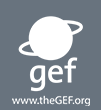
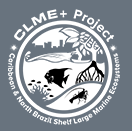

Cookies policy
We use cookies to enhance your site experience, to provide you with extra functionalities and for analytical purposes. You can consent to the use of such technology by accepting and closing this notice. If you want to find out more, please read our cookies policy here.
Welcome to SOMEE
MenuSOMEE content is still under development and is therefore not yet available online. However, you can already check for sample text and materials under the sections in blue text










